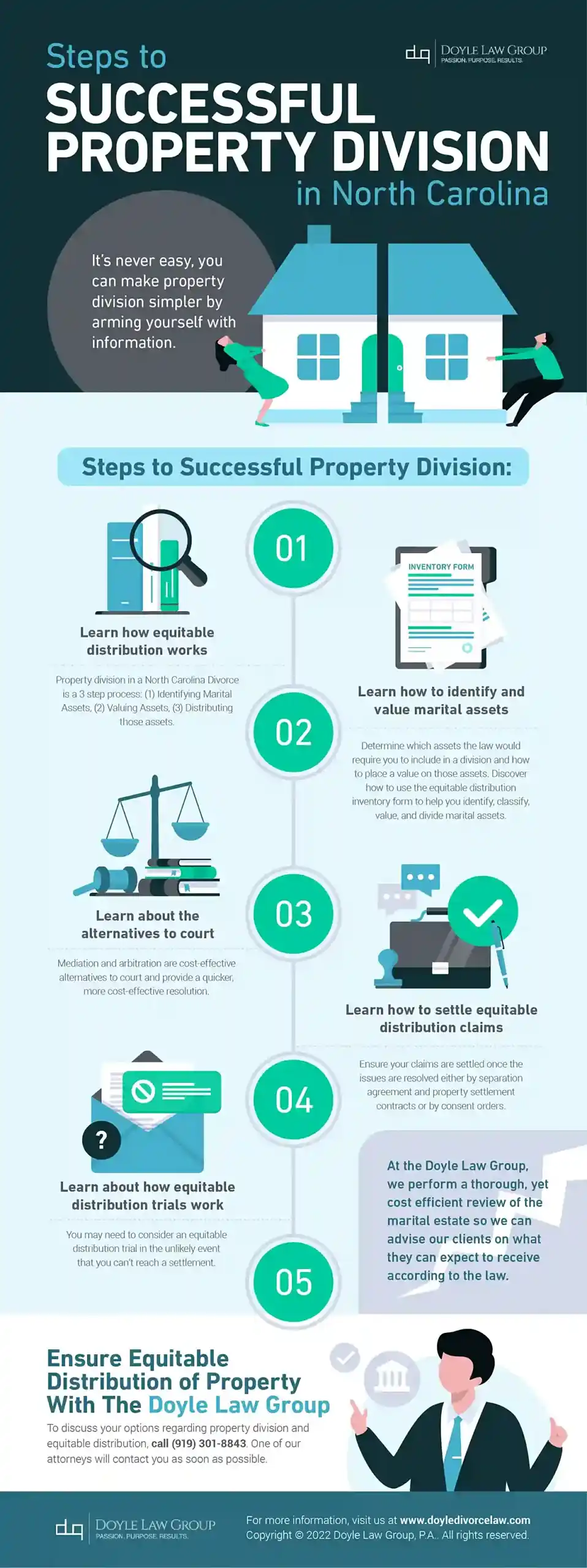
Property Division and Equitable Distribution

Dividing Property and Marital Assets in North Carolina
How do we divide our marital property? What is marital property? The divorce attorneys at The Doyle Law Group, P.A. have been helping North Carolina couples handle equitable distribution and property division for over twelve years.
In North Carolina, property in separation and divorce is controlled by North Carolina General Statute § 50-20.
In a divorce, "property" refers to assets like:
- Bank accounts
- Retirement accounts
- Insurance policies
- Real estate
- Collections (antiques, artwork, etc)
- Vehicles, including boats
- Household goods and furnishings
Many other items may be classified as assets during a divorce. If you have concerns about what constitutes an asset, we recommend consulting your attorney.
How North Carolina Property Division Is Settled
The best way to deal with property division in a divorce is by agreement early in the process. If you and your former spouse can reach a fair agreement, you can avoid the actual process of equitable distribution. Even if you and your former spouse reach a fair agreement, we recommend having your divorce attorney create a preliminary division according to the laws of equitable distribution.
An experienced divorce lawyer will be able to guide you after a relatively simple review of your marital estate. At the Doyle Law Group, we perform a thorough, yet cost efficient review of the marital estate so we can advise our clients on what they can expect to receive according to the law.

Steps to Successful Property Division
So how does one began dealing with property division in divorce (or equitable distribution as its referred to by statute)? While it's never easy, you can make property division simpler by arming yourself with information:
- Learn how equitable distribution works. This page gives you quick and valuable insight into the three-step process of property division in a North Carolina Divorce: (1). Identifying Marital Assets, (2). Valuing Assets, (3). Distributing those assets.
- Learn how to
Ensure Equitable Distribution of Property With The Doyle Law Group
To discuss your options regarding property division and equitable distribution, call (919) 301-8843 or complete the form below. One of our attorneys will contact you as soon as possible.


